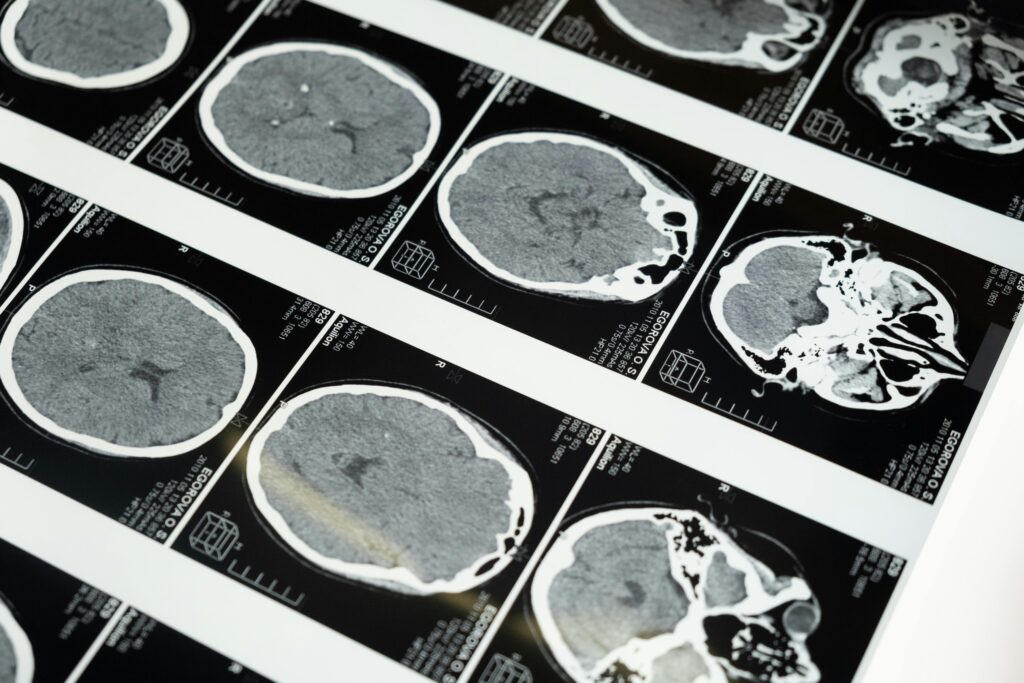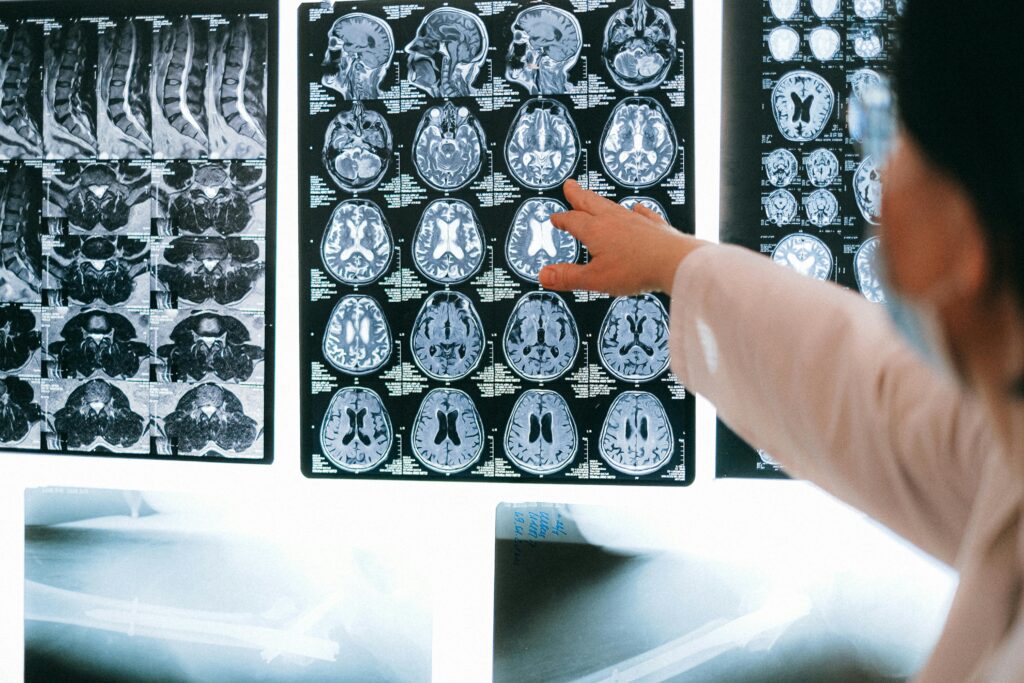
Drug abuse has far-reaching consequences on the human brain, impacting various aspects of brain function and structure, and underscoring the critical need for interventions that recognize how the healthy brain is compromised by addictive substances. The National Institute on Drug Abuse (NIDA) sheds light on the effects of drug addiction on the brain, providing valuable insights into the neurological changes that occur due to substance use.
How does drug abuse affect the brain?
Drug abuse has a profound impact on different brain regions of the human brain, altering their normal functioning. The continuous use of drugs leads to significant changes in brain function, affecting neurotransmitter levels and communication between neurons. These neurological effects can have lasting consequences on an individual’s cognitive abilities and emotional well-being.
Impact of drugs on brain regions
Various drugs target specific brain regions, disrupting their normal activities. For instance, cocaine affects the dopamine levels in the brain, leading to altered moods and behaviors. Heroin, on the other hand, influences opioid receptors in the brain, impacting pain perception and pleasure sensations and how the brain regulates these experiences.
Changes in brain function due to drug use
Continued drug use can result in long-lasting changes in the brain in ways that affect decision-making processes and impulse control in the part of the brain responsible for these functions. Addicted individuals may struggle with making rational choices and controlling their behaviors due to the alterations in brain chemistry caused by substance abuse.
Neurological effects of drug abuse
Drug abuse can impair executive functions in the brain, such as cognitive flexibility and self-regulation. This can lead to difficulties in managing emotions and behaviors, further exacerbating the cycle of addiction and substance use disorders.
What are the long-term effects of drug addiction on the human brain?
Long-term drug addiction can result in significant changes in brain structure and function, having a lasting impact on an individual’s cognitive abilities and behavior, an effect that underscores addiction as a brain disease. These effects of drug abuse can persist even after the individual stops using drugs, highlighting the severity of substance use disorders.
Long-lasting changes in brain structure
Chronic drug use can alter the physical structure of the brain, affecting the connectivity between neurons and brain areas. These structural changes may contribute to persistent cognitive impairments and emotional disturbances in individuals struggling with drug addiction.
Effects of drug addiction on decision-making processes
Drug addiction can impair the brain’s ability to make sound decisions, leading to impulsive behaviors and risky choices. This alteration in decision-making processes can perpetuate the cycle of addiction and make it challenging for individuals to break free from substance use, underscoring how long-lasting brain changes can make recovery difficult.
Impulse control issues in addicted individuals
Individuals with drug addiction may experience difficulties in controlling their impulses and behaviors, resulting in compulsive drug-seeking and harmful actions, a behavior pattern intricately linked with the changes the brain undergoes through addiction. These impulse control issues are closely linked to the changes in brain function caused by long-term substance abuse.
How do drugs like cocaine and heroin affect the brain?
Cocaine and heroin, two commonly abused drugs, exert specific effects on the brain’s neurotransmitter systems and neuronal responses. Understanding how these drugs impact the brain is crucial in developing effective treatment strategies for individuals struggling with addiction, as recognized by American Addiction Centers and their focus on neuroscience-driven care.

Dopamine release and its impact on the brain
Cocaine and heroin influence dopamine release in the brain, leading to heightened feelings of pleasure and reward. This dopamine-driven reinforcement can contribute to the addictive nature of these drugs and the cycle of substance abuse.
Neuronal responses to cocaine and heroin use
The brain responds to cocaine and heroin use by adapting its neuronal pathways and receptor sensitivities, a clear example of how drugs affect the brain. These adaptive changes can alter the brain’s reward system and lead to cravings and compulsive drug-seeking behaviors in addicted individuals.
Executive function impairment in long-term substance abuse
Long-term substance abuse, particularly with drugs like cocaine and heroin, can impair executive functions in the brain, affecting cognitive processes such as decision-making, planning, and impulse control. These impairments can hinder an individual’s ability to break free from addiction and seek help, as drugs on the brain lead to considerable obstacles in the path to recovery, necessitating a comprehensive approach to address how the brain in ways becomes dependent on these substances.
What part of the brain is most affected by drug addiction?
The central nervous system and the limbic system play crucial roles in drug addiction, influencing addictive behaviors and the brain’s response to drugs of abuse. Understanding how the brain processes addiction can aid in developing targeted interventions for individuals struggling with substance use disorders.
Role of the central nervous system in drug addiction
The central nervous system, including the brain and spinal cord, regulates the body’s response to drugs and influences addictive behaviors, underlining how the brain is the most complex organ impacted by substance abuse. Changes in the central nervous system due to drug addiction can contribute to the reinforcing effects of drugs and the development of addiction.
Addictive mechanisms in the limbic system
The limbic system, responsible for processing emotions and memories in the human brain, plays a significant role in addiction. Drug use can hijack the brain’s natural reward pathways in the limbic system, leading to compulsive drug-seeking behaviors and the prioritization of drug use over other activities.
Connection between drug use and natural reward pathways
Drugs of abuse, such as cocaine, interact with the brain’s natural reward pathways, like the release of dopamine, to produce pleasurable sensations and reinforcement, demonstrating the need to take larger amounts over time to achieve the same pleasurable effect. By hijacking these natural mechanisms, drugs can induce changes in brain function that promote continued drug use and addiction, illustrating how the brain may not be permanent in adapting to these intrusions.
How does NIDA recommend addressing drug addiction through treatment?
NIDA advocates for a comprehensive approach to addiction treatment, incorporating behavioral therapies and neuroscience-based interventions to address drug abuse and substance use disorders effectively. By understanding the complex interplay between drugs and the brain, treatment strategies can be tailored to meet the specific needs of individuals seeking recovery.
Overview of addiction treatment strategies suggested by NIDA
NIDA recommends a combination of medication-assisted treatment, behavioral therapies, and counseling to address drug addiction comprehensively. These integrated approaches aim to target the biological, psychological, and social aspects of addiction to promote long-term recovery.
Importance of behavioral therapies in addiction recovery
Behavioral therapies play a crucial role in addiction recovery by addressing maladaptive behaviors and thought patterns associated with drug addiction, focusing particularly on how drugs can create lasting changes in the neurons in the brain. These therapeutic approaches help individuals develop coping strategies, improve decision-making skills, and build a support network for sustained sobriety in facing substance use disorders, acknowledging how methamphetamine use can alter brain function.

Drug abuse has a profound impact on the human brain, affecting various cognitive functions and neural pathways. The National Institute on Drug Abuse (NIDA) has conducted extensive research on how drug use alters brain chemistry and function.
The Role of Dopamine in Drug Addiction
Dopamine plays a crucial role in addiction by influencing reward-motivated behavior, demonstrating how drugs can alter brain chemistry. Its release in the brain is associated with feelings of pleasure and reinforcement, making it a key neurotransmitter in substance use disorders.
Understanding Dopamine’s Influence on Addiction
Dopamine’s influence on addiction stems from its ability to reinforce drug-seeking behaviors. When drugs stimulate dopamine release, it creates a powerful association between substance use and pleasure, showcasing the long-term effects on the brain linked to addiction and pleasure-seeking behaviors.
The Connection Between Dopamine and Drug Abuse
The overstimulation of dopamine receptors due to drug abuse can lead to neuroadaptations, altering the brain’s reward system and promoting compulsive drug-seeking behaviors, an example of how drugs have toxic effects on critical neural pathways.
Effects of Dopamine on Brain Function
Dysregulation of dopamine levels can disrupt normal brain function, impacting decision-making, impulse control, and emotional regulation in individuals struggling with addiction, illustrating how drugs interfere with the brain’s ability to regulate these critical functions.
Long-term Effects of Drug Abuse on the Brain
Chronic drug abuse can result in lasting changes in brain regions responsible for cognitive functions and emotional processing. These alterations can impair executive function and hinder the brain’s ability to regulate behavior.
How Drug Abuse Alters Brain Regions
Prolonged drug use can modify brain regions involved in learning, memory, and decision-making, leading to cognitive deficits and behavioral abnormalities in individuals with substance use disorders, highlighting the importance of understanding how the brain consists of various functional areas affected by substances.
Impact of Drugs on Executive Function
Drugs can disrupt executive function, the cognitive processes responsible for planning, decision-making, and self-control. This impairment can interfere with daily activities and increase the risk of addiction-related behaviors.
Reversing Long-lasting Brain Changes from Drug Addiction
While long-lasting brain changes from drug addiction can be challenging to reverse, interventions such as behavioral therapies and pharmacological treatments can help restore neural plasticity and improve brain function over time.
Neurological Impact of Drugs and Alcohol
Drug and alcohol consumption can alter neuronal structure and function, leading to disruptions in the central nervous system and showing how continued use encourages users to keep taking drugs to maintain their altered state. Substance use disorders can cause profound neurological changes that affect cognition, emotion, and behavior.
Changes in Neurons Due to Substance Use Disorder
Substance use disorder can induce structural and functional changes in neurons, impacting synaptic connections and neurotransmitter activity. These alterations contribute to the addictive nature of drugs and alcohol.
Effects of Heroin and Cocaine on the Nervous System
Heroin and cocaine exert distinct effects on the nervous system, disrupting normal neuronal communication and neurotransmitter balance. These drugs can hijack the brain’s reward circuitry, leading to compulsive drug-seeking behaviors.
Drug-Induced Impulse Control and Decision-making Impairment
Persistent drug use can impair impulse control and decision-making processes, compromising an individual’s ability to make rational choices and resist drug cravings, a clear sign of how drugs can alter the brain’s wiring. These cognitive deficits are characteristic of substance use disorders.
The Addicted Brain: Brain Regions Affected by Drug Use
Drug addiction impacts specific brain regions involved in reward processing, motivation, and memory formation. The addictive nature of drugs can hijack the brain’s natural reward system, reinforcing substance-seeking behaviors.
Examining Brain Regions Affected by Addiction
Areas such as the prefrontal cortex, nucleus accumbens, and amygdala are particularly affected by addiction, influencing decision-making, emotional responses, and reward processing. Understanding these neural changes is vital for designing effective treatment strategies.
The Role of Natural Rewards in Drug Addiction
The brain’s response to natural rewards, such as food and social interaction, can be hijacked by addictive substances, showcasing how taking drugs can lead to a rewiring of the brain’s reward system and how individuals may need to take larger amounts to achieve the same effect. Drugs and alcohol artificially activate the reward system, leading to the prioritization of substance use over essential activities for survival.
How Alcohol and Drugs Impact Brain Function
Alcohol and drugs alter brain function by modulating neurotransmitter release and disrupting neuronal communication. These substances can impair cognitive processes, memory formation, and emotional regulation, contributing to addictive behaviors and substance dependence.
Treatment Options for Drug Addiction: NIDA Recommendations
NIDA recommends a multifaceted approach to treating drug addiction, incorporating behavioral interventions, pharmacological therapies, and social support to address the complex nature of substance use disorders.
Understanding Addiction Treatment Approaches
Effective addiction treatment involves tailored interventions that target individual needs, including counseling, medication-assisted therapy, and support groups. These approaches aim to address the physical, psychological, and social aspects of addiction.
Impact of Addiction Treatment on Brain Function
Addiction treatment can promote neuroplasticity and reverse neural changes associated with substance abuse. By restoring brain function, individuals can experience improved cognitive abilities, emotional regulation, and decision-making skills, demonstrating the potential for recovery from the changes the brain undergoes due to substance abuse.
Effective Strategies for Overcoming Substance Use Disorders
Combining evidence-based strategies with ongoing support and monitoring is key to overcoming substance use disorders, highlighting the importance of addressing the brain changes drugs cause. NIDA emphasizes the importance of long-term engagement in treatment and recovery programs to prevent relapse and sustain positive behavioral changes.
Q: How do drugs and alcohol affect the brain?
A: Drugs and alcohol can alter important brain areas, including the brain stem, leading to changes in brain chemistry and function, and delaying the time it takes for the brain to fully develop.
Q: What are the long-term effects of drug abuse on the brain?
A: Long-term drug use can cause brain damage, affect brain development, and alter the way the brain remembers and processes information, illustrating the profound changes the brain undergoes due to substance abuse.
Q: What is an addicted brain?
A: An addicted brain is a brain that has been rewired by the effects of addictive drugs, leading to cravings and dependency.
Q: How do drugs produce changes in the brain?
A: Drugs produce changes in the human brain by triggering a surge of dopamine, a neurotransmitter associated with pleasure and reward.
Q: What is the impact of cocaine use on the brain?
A: Cocaine use can have severe effects on the brain, such as damaging brain cells and altering important brain areas, demonstrating how drugs have toxic effects on critical regions of the brain.
Q: How does alcohol affect the brain?
A: Alcohol can affect the human brain by disrupting brain chemistry, particularly in the last part of the brain where decision-making and impulse control are regulated.
Q: How can drug addiction treatment help the brain recover?
A: Drug addiction treatment can help the brain recover by supporting brain health, promoting neuroplasticity, and assisting in the repair of damaged brain areas.










